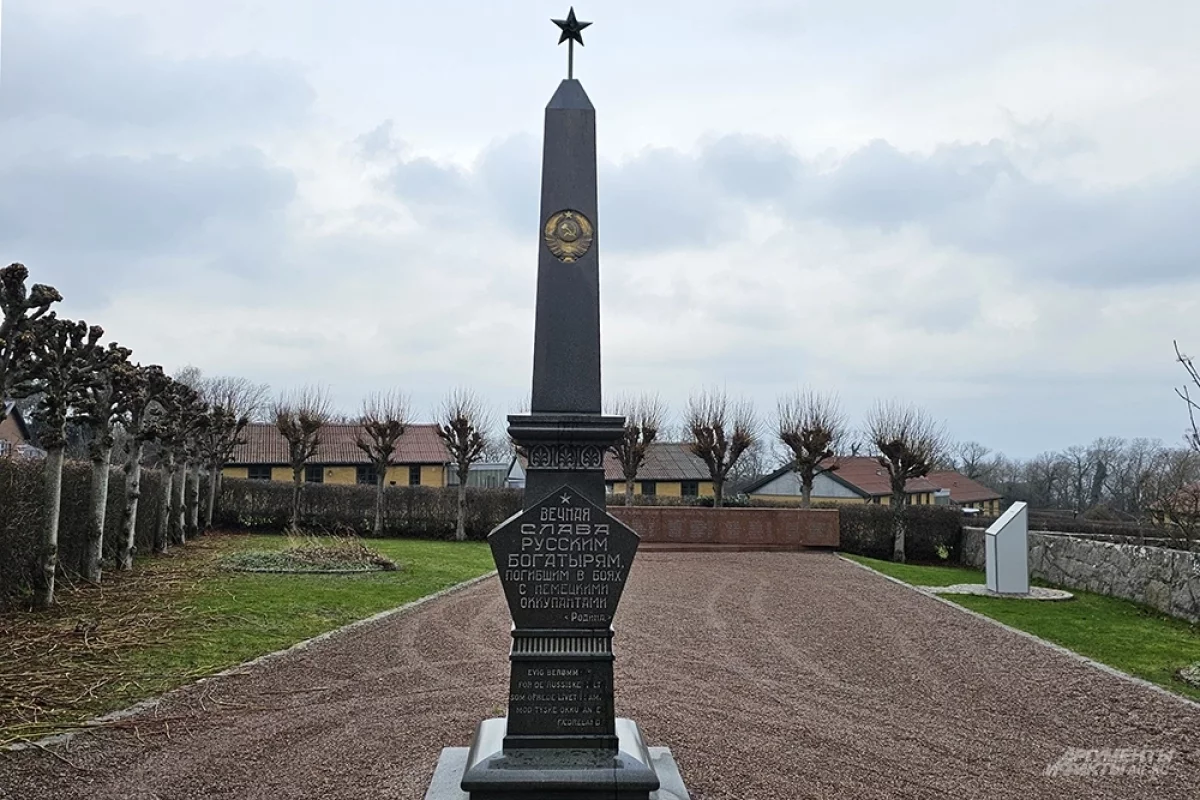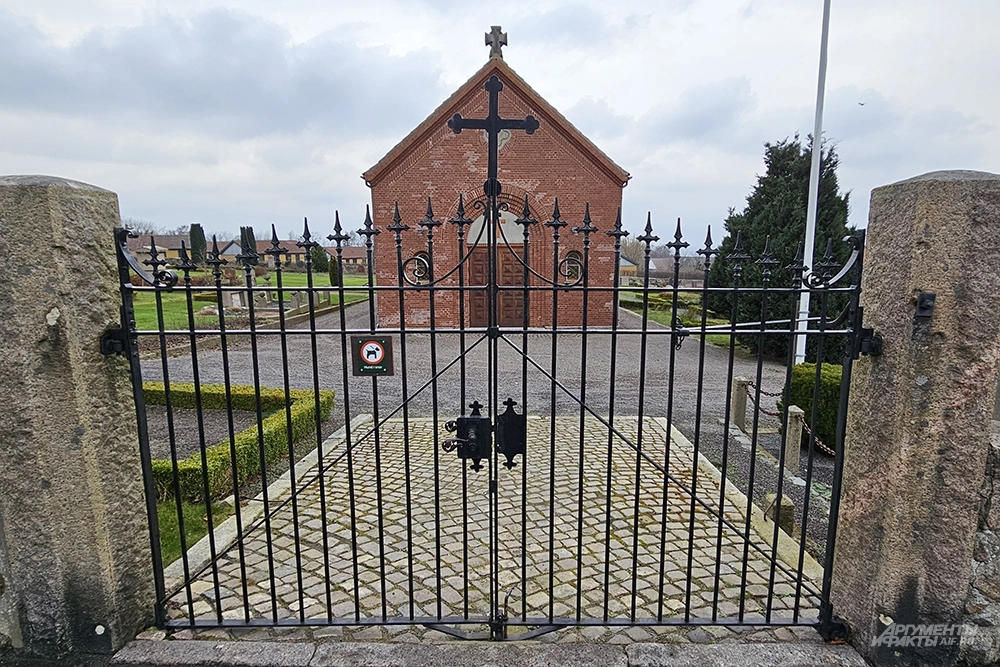Has the memory of the soviet feat in WWII been completely erased in Europe? Georgy Zotov is a travelling correspondent of “Argumenty i Fakty”, reporting from various corners of the world.
10 years ago, in 2015, on the eve of the 70th anniversary of the Great Victory he visited several European countries taking the pulse of the historic memory. Back then, we translated many of those articles, and our readers can find them under the tag of Georgy Zotov.
This year, on the eve of the 80th anniversary, he takes a new sample of the level of the historic amnesia in the West.
 The reality of the occupation of Denmark by the Germans is reflected in the Danish communist underground book “2 Years”, which we translated in its entirety, with many contextual footnotes. On page 7 there is the following illustration: In the picture we see green hands with a swastika grabbing the supplies. “Eggs” is written on the box. In the text below the picture it says: “- and then everything else.”
The reality of the occupation of Denmark by the Germans is reflected in the Danish communist underground book “2 Years”, which we translated in its entirety, with many contextual footnotes. On page 7 there is the following illustration: In the picture we see green hands with a swastika grabbing the supplies. “Eggs” is written on the box. In the text below the picture it says: “- and then everything else.”
“Russian drunks and invaders.” How they thank us for the liberation in Denmark.
– by Georgy Zotov, April 2, 2025. All photographs in the article are by the author.

Inscription on the stella: “Eternal glory to the Russian strongmen, who fell in the battles with the German occupants.”
…An icy wind is blowing from the sea. It’s spring and understandably cold, but it’s amazing how this gloomy island is considered a resort in Denmark. The church and cemetery are located on a hill, the sky is covered with gray clouds. “Where can I buy flowers? I want to put them on the grave,” I ask my driver. “Flowers? There are no tourists here right now, man. They only sell beer.”
I walk up to the doorway. There used to be iron doors with the coat of arms of the USSR, but they have recently disappeared — I will explain why later. I walk to the obelisk with the red star, where the letters are embossed — “Eternal glory to the Russian strongmen, who fell in the battles with the German occupants”. 30 Soviet soldiers who participated in one of the last battles of the Second World War are buried here. On May 9, 1945, Red Army troops landed on Bornholm and captured 11,138 Wehrmacht soldiers. Later, there was a Soviet military base on the island, and it was under Soviet control until our troops left Denmark on April 5, 1946. Do the Danes have gratitude for their liberation, and how do they feel about the Red Army’s presence on Bornholm?
The Battle after the Victory
…First of all, I’ll tell you how it all happened. On May 4, 1945, German divisions surrendered to the British in Denmark. However, the British did not reach the Nazi garrison on Bornholm. Air defence and German Navy ships often opened fire on passing Soviet destroyers and planes flying by. The group on Bornholm hoped to cross to Copenhagen, and once there, surrender to the British — but at the same time they fired at the Red Army. The Soviet command issued an ultimatum to the German units on Bornholm demanding surrender. There was no response, so on May 7 and 8, airstrikes were carried out on the island, during which hundreds of Wehrmacht soldiers were killed. At 14:30 on May 9, 1945, five boats of the Soviet Navy entered the main port of Bornholm, Rønne, and landed an amphibious company. The Germans were told that if they tried to resist, the bombing would resume. The company occupied the telegraph office, the port management building, and cut the communication cables. Three hours later, the garrison in Rønne surrendered. Soviet aircraft sank 10 enemy ships trying to escape from Bornholm and shot down 16 German aircraft. All day there were skirmishes between the Red Army and the Germans, who were fleeing on transports and boats from the island — dozens of our soldiers died. On May 10, a barge was intercepted at sea, on which 800 German soldiers tried to escape.
Continue reading

